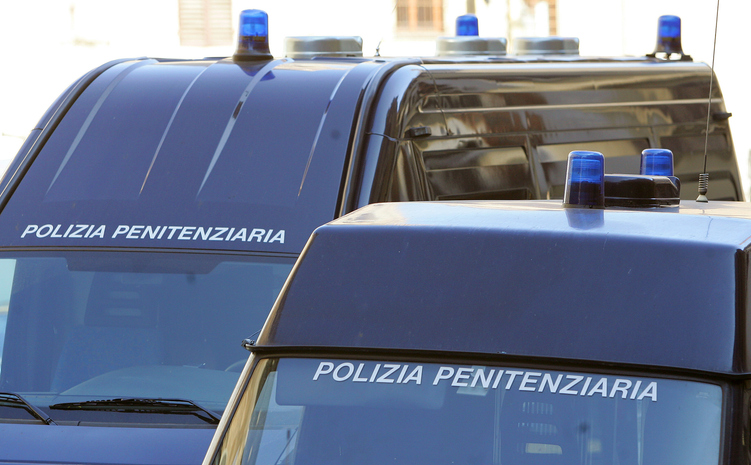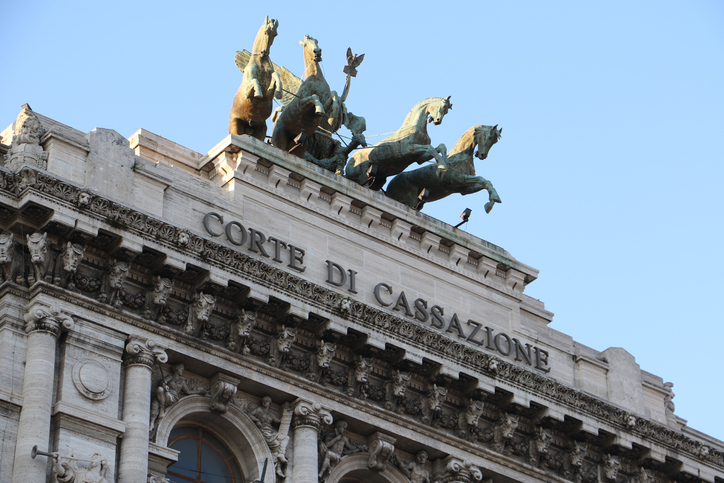x
Our website uses cookies. By continuing to use the site, you agree to our use of these cookies. To learn more about how we use the cookies and how you can manage them, please see our cookies policy.
Italy has a unique criminal justice system that differs from the laws of England and Wales, which relies on Common Law and Italy on Civil Law. Also, Italian judges play a crucial and active role during cross-examination, whereas in England and Wales, the judge remains neutral during the trial process. These differences in cross-border criminal law, language barriers, and lack of knowledge of your rights can accumulate in confusion if you are arrested in Italy.
This guide will explore what foreign nationals should do if they have been arrested in Italy, and the importance of seeking cross-border criminal defence lawyers (Avvocato) as soon as possible.
Click on the links below to jump to that section:
Read about how fair the Italian prison system is for foreign nationals.
Discover your rights if you are arrested in Italy, especially if you are unsure of your crime.
Find out what foreign nationals should do after being arrested in Italy.
Find out the benefits of criminal defence lawyers (Avvocato), and how Giambrone & Partners can help.
Read the most common queries on Italian criminal law.
In Italy, the prison system is divided into two categories: youth detention centres and adult prisons, both of which operate under the Ministry of Justice. The youth detention centres are specifically designed for offenders under the age of 18 and focus more on rehabilitation than punishment. This includes educational programmes and vocational training to reintroduce young offenders back into society.
For adults, Italian prisons vary in their security levels depending on the crime. Foreign nationals may find themselves in a particularly vulnerable position navigating the complexities of a foreign legal system. In some cases, without proper legal assistance, pre-trial detention in Italy can be a lengthy process.
The three main police forces in Italy are the national police (Polizia), the national gendarmerie (Carabinieri), and the military authorities (Guardia di Finanza).

Despite these challenges, as a member of the European Union (EU), Italy is bound by the European Convention on Human Rights, which guarantees minimum standards of treatment for detainees.
After you are arrested, the Italian police have the right to detain you for up to 24 hours. After this period, a judge will determine whether you will be released within 48 hours or further detained and questioned.
However, under Italian criminal law, you also have certain rights if you are arrested, regardless of whether you are an Italian citizen or not. Your rights after being arrested in Italy include:
If you are alone in a foreign country as a British national, you have the right to contact a family member or another trusted person. You should ensure that the British Embassy or Consular office are aware of your arrest. They should guide you through the local justice system in case of mistreatment.
After you have been arrested and further detained, you have the right to remain silent and are not required to answer any questions that may hurt your defence. Anything you say can be used against you to prosecute you if the matters proceed to the Italian courts. It is advisable to instruct an English-speaking criminal defence lawyer before speaking to the police and only be interviewed by the police in their presence.
Being arrested is stressful, this is further amplified if you are in a foreign country. If you do not speak or understand Italian, you are entitled to a have access to an interpreter while being questioned. This is vital in order that you completely understand the charges against you, why you have been arrested, and your rights. Obtaining legal advice is crucial in this situation.
You will also receive a written translation of any essential documentation, such as the arrest warrant, into a language you understand (for example, English).
Regardless of the severity of the accusation, every person has the right to legal representation when they are arrested. It is essential to instruct a criminal defence lawyer (Avvocato) to clarify your understanding your rights, including your right to appeal before the "Tribunale del riesame", and avoid any potential misunderstandings during the court proceedings and detention period. If you cannot afford legal representation, you can apply for legal aid.
Giambrone & Partners’ experienced criminal defence lawyers have represented clients at trial in various circumstances, including manslaughter, drug trafficking, and road traffic offences, as well as other serious offences. We will always act in your best interest, ensuring that your rights are upheld throughout your arrest in Italy.
Our multi-lingual lawyers will act as a buffer between you and the Italian police so that you understand everything happening throughout the legal proceedings.
Contact our Italian criminal lawyers (Avvocato) for more information.
If you have been arrested in Italy, the first step is to remain calm. Complying with the Italian police will ensure you do not inadvertently complicate your situation or intensify your charges. Ensure you exercise your right to remain silent until you have consulted with your Italian criminal lawyer (Avvocato), who will be able to provide expert advice and assistance on the criminal proceedings.
If you are arrested in Italy, seeking assistance from the local British Embassy or Consulate is vital. They can provide valuable guidance on navigating the legal system and ensuring your rights are upheld. Additionally, they can act as a crucial link between you and the local authorities, facilitating communication and support during this challenging time.
For British nationals, the Italian authorities should ask you if you want to contact the local British embassy. If a request is not made through the diplomatic channels, you can make the request yourself. Although they cannot interfere directly in the judicial process, consular officers can help you understand your legal options and ensure that you are treated fairly.
Upon your arrest, you will be informed in English why you have been detained and given an interpreter if required. There will be a hearing with a judge who will decide whether the arrest was lawfully carried out and decide whether the matter can be dismissed or whether you are to be detained for trial. You do not have to answer any questions apart from confirming your name and place of birth.

It is important to request a lawyer as soon as possible. Even if the charges against you seem minor, having a legal expert by your side can make a significant difference in how your case is handled. An experienced criminal defence lawyer will help protect your rights and navigate the complexities of the Italian judicial system, which may be unfamiliar to you.
Giambrone & Partners’ team of multi-lingual, multi-jurisdictional criminal defence lawyers are experienced in handling cases involving foreign nationals. If you are facing a criminal accusation in Italy, our team can provide expert advice and legal assistance.
Our Italian Criminal Defence Department will arrange legal aid if necessary, during and full legal representation at all court levels. You do not have to be alone during this stressful time, and our lawyers will always aim to protect your rights.
For more information or to request a call back with our criminal defence lawyers, contact Giambrone & Partners today.
In Italy, you can be detained for a maximum of 24 hours without charges. After this period, you will be brought before a judge, who will determine whether you will be released or remain in custody. This decision must be made within 48 hours of your arrest.
Extradition from Italy can occur if another country requests it and the legal requirements for extradition are met. For EU nationals, the European Arrest Warrant system simplifies extradition between EU member states.
Non-EU nationals may face different procedures, depending on bilateral treaties between Italy and their home countries.
Victims' Rights in Italy: Essential Guide for Travellers
Legal Help for Arrests Abroad: Know Your Rights
Legal Aid in Europe for Holiday Arrests Giambrone & Partners